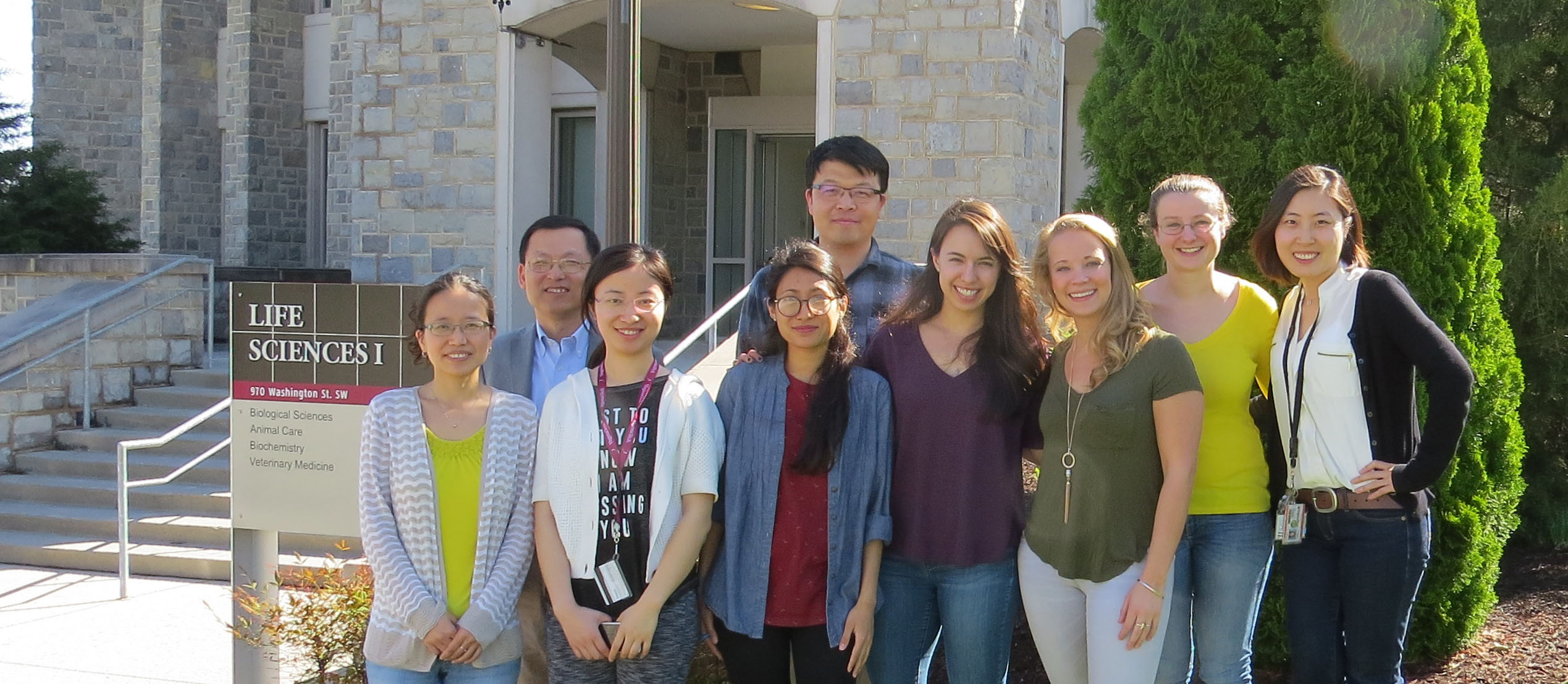 |
Class of 2023 announced as the AAAS Fellows program celebrates its 150th anniversary
2024 World Congress on Inflammation
2024 Aegean Conference on Innate Immunity
2024 Southeast Immunology Conference
Dr. Li is endowed as the College of Science Faculty Fellow Professor
Dr.Li is an elected Fellow of the American Heart Association
Dr. Blake Caldwell receives the Virginia Tech Presidential Postdoctoral Award
Dr. Li presented at the International Conference on Neutrophils 2022.
World Congress on Inflammation 2022.
Dr. Li chaired a session during the 17th Aegean Conference on Innate Immunity 2022.
Dr. Jing Wang, awarded the American Heart Association Postdoctoral Fellowship.
Dr.Li gave an invited seminar at the Southeast Immunology Symposium 2022 held at Duke University.
Dr. Li served as a regular member for the NIH Atherosclerosis and Vascular Inflammation study section 2020-2023.
Collaborative pilot in cancer immune therapy.
Dr. Li presented at the Southeast Immunology Symposium 2018.
Dr. Li received the Alumni Award for Research Excellence of Virginia Tech, 2017.
Dr. Li was invited to serve as a standing member for the NIH Innate Immunity and Inflammation study section 2005-2008.
2024
Epigentic memory of exhausted monocytes defined in vivo and in vitro
2020s
Resolving neutrophils naturally present in human and murine systems defined, characaterzied by reduced CD177; reduced TRAM; elevated CD200R. Engineered resolving neutrophils can effectively be used to treat atherosclerosis.
Resolving monocytes identified with therapeutic potential in treating inflammatory diseases such as atherosclerosis, characterized by reduced TRAM expression and elevated levels of CD200R.
Exhaustion monocyte memory defiend, with key relevance to sepsis and polymicrobial infection, initiated by sustained challenges with septic dosages of endotoxin.
The key features of exhausted monocytes include:
a) reduced differentiation and elevated proliferative potential;
b) pathogenic inflammation reflected by elevated expression of CD38;
c) immune-suppression mediated by enhanced expression of PD-L1 and reduced expression of CD86.
TRAM adaptor was characterized as a key node involved in the generation of both exhaustion memory and low-grade inflammatory monocyte memory.
The generation of exhaustion memory requires TRAM-mediated disruption of mitochondria homeostasis.
The generation of low-grade inflammatory memory involves TRAM-mediated selective disruption of peroxisome homeostasis.
2010s
Low-grade inflammatory monocyte memory defined, which can be generated by sustained challenges with weak danger/damage signals.
Key principles for the generation of low-grade inflammatory memory identified that underlies the pathogenesis of atherosclerosis.
Revealed key circuits underlying signal-strength and duration-dependent priming and tolerance.
Integrated computational and experimental studies revealed that the removal of homeostatic mediators is required for the generation of low-grade inflammatory memory.
TRAM adaptor is involved in the generation of low-grade inflammatory monocyte memory.
2000s
Characterized key IRAK kinases involved in endotoxin tolerance in human monocytes
1) IRAK-1 can be ubiqutinated following prolonged endotoxin challenge.
2) IRAK-1 serves as a STAT3 activating kinase, with low-signal stregnth mediated STAT3 activation favoring the expression of IL-6, IL-1b, while higher signal strength favoring the expression of IL-10, SLPI, and other suppressors.
3) IRAK-M serves as a suppressor of low-grade inflammation, and a facilitator of monocyte exhaustion.
Characterization of Tollip, a unique adaptor modulating innate immunity:
1) first identified its lipid binding property;
2) defined its homeostatic capability by facilitating lysosome fusion;
3) discovered its shuttling from lysosome to mitochondria which serves as a bifurcation switch for modulating homeostasis and low-grade inflammation.
1997
Human CDC14A/B phosphatases and related PTEN phosphatase discovered by Dr. Li.

